The information was emphasized by experts at the scientific conference “Science, technology and innovation: The decisive factor for Vietnam to become a high-income country by 2045” on the morning of May 27 in Hanoi. The event was organized by the Institute of Strategy and Policy on Science & Technology in collaboration with the Institute of International Economics and Law.
Expectations for new 'contract 10' for science and technology
In his opening speech, Dr. Nguyen Xuan Khoat - Chief of Office of the Institute of International Economics and Law stated that Vietnam's economy in 2024 will achieve an impressive growth rate of 7.09%, continuing to be a bright spot in the Asian region. However, entering 2025, Vietnam will face many new challenges such as a global growth slowdown, increasing trade protectionism, and increasingly fierce innovation competition among countries.
According to Dr. Khoat, to achieve the goal of becoming a high-income country by 2045 – an ambitious but necessary goal – Vietnam needs fundamental breakthrough solutions. In particular, the only correct path for development today is to rely on science and technology (S&T), innovation (I&T) and digital transformation (DCT).
Emphasizing the role of science and technology and innovation, Dr. Nguyen Huu Xuyen - Deputy Director in charge of the Institute of Strategy and Policy on Science and Technology said that the potential of science and technology and innovation in Vietnam has not been exploited commensurate with their strategic role in improving labor productivity and growth quality.
In the context of a rapidly and profoundly changing world , the Party and State have issued many strategic policies, notably Resolution 57 with the aspiration to create breakthroughs in the development of science and technology, innovation and national digital transformation.
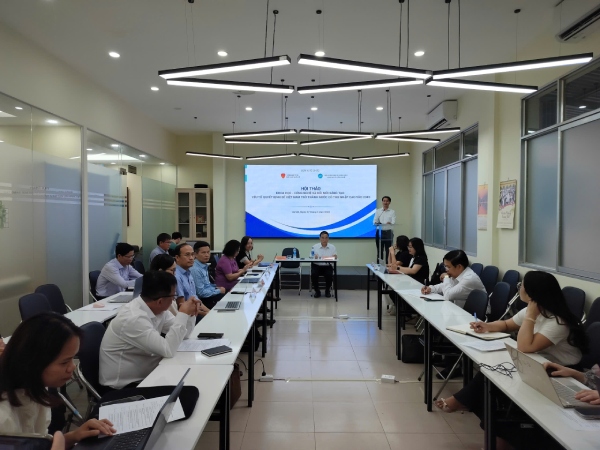
Mr. Xuyen compared Resolution 57 to a new "Contract 10", which is expected to remove institutional bottlenecks, unlock resources and open up a development model based on knowledge and innovation. In addition, other important resolutions such as Resolution 68 on private economic development, Resolution 59 on international integration, and Resolution 193 on piloting specific policy mechanisms also show the determination to transform innovation into a practical driving force for socio-economic development.
"Vietnam is currently facing a golden opportunity to transform its development model, taking full advantage of opportunities from the fourth industrial revolution, artificial intelligence and the digital economy. Institutional reforms are gradually creating a favorable legal corridor for new business models and technologies. Mobilizing resources from the private sector, especially startups and high-tech enterprises, is becoming urgent in creating a dynamic and sustainable innovation ecosystem," emphasized the Deputy Director of the Institute of Strategy and Policy on Science and Technology.
However, according to Mr. Xuyen, along with opportunities are significant challenges. The legal system still lacks synchronization between laws related to science and technology, public investment and public finance; high-tech human resources are still weak; digital infrastructure does not meet requirements; testing mechanisms such as sandboxes lack specific guidance. In particular, most domestic enterprises, especially small and medium-sized enterprises, still have limited technology absorption capacity and lack a culture of innovation.
Comprehensive institutional reform is needed.
From another perspective, Associate Professor, Dr. Nguyen Ngoc Ha - Director of the Institute for Innovation Research (Foreign Trade University) affirmed that innovation and technology transfer are vital strategies in the context of increasingly fierce global competition. Vietnam has achieved many positive results such as increasing its ranking on the GII table, developing a startup ecosystem and attracting international technology enterprises.
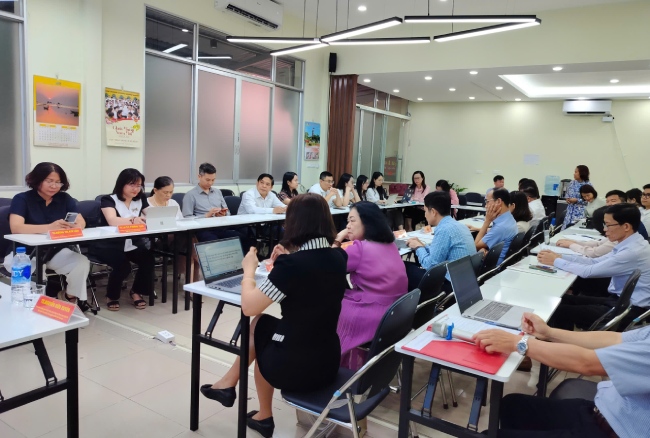
The workshop attracted the participation of many experts and representatives of management agencies.
However, the level of investment in R&D is still low, accounting for only about 0.42% of GDP - far lower than that of developed countries. Most domestic enterprises do not fully understand the strategic role of R&D, leading to a situation of scattered and in-depth investment. In addition, the policy framework supporting innovation is still inadequate, with cumbersome administrative procedures and weak intellectual property protection mechanisms, causing enterprises to lack motivation to continuously innovate.
According to Mr. Ha, to improve the situation, Vietnam needs to comprehensively reform institutions, implement a strategy to develop high-quality human resources, and at the same time promote businesses to invest heavily in R&D, build a culture of innovation and develop a three-way ecosystem: state - business - school.
From a financial policy perspective, Dr. Nguyen Thi Thu Hien, President of the Institute of International Economics and Law, said that one of the biggest “bottlenecks” today is that the public financial mechanism for science and technology is still inflexible and does not accept risks. State ownership of research results using the state budget is reducing the motivation for innovation and commercialization. In addition, the overly strict budget allocation, monitoring and control processes have stifled basic research activities – which are inherently high-risk.
Ms. Hien proposed three key solutions. First, improve the efficiency of public spending through the spending contract mechanism, increase controlled risk-taking and reform science and technology development funds. Second, mobilize private capital and alternative resources such as venture capital funds, angel funds, and crowdfunding models. Third, promote commercialization by reforming intellectual property rights, technology valuation, developing science and technology business incubators and expanding public-private partnerships.
At the workshop, experts agreed that to achieve the goal of becoming a high-income country by 2045, Vietnam needs to strongly transform to a growth model based on knowledge, innovation and technology. The "trio" of science and technology, innovation and digital transformation is not only a new growth driver but also a foundation for Vietnam to overcome the middle-income trap and become a developed, self-reliant and prosperous country.
Source: https://doanhnghiepvn.vn/cong-nghe/xay-dung-khong-gian-phat-trien-kinh-te-moi-tren-nen-tang-cong-nghe-doi-moi-sang-tao/20250527105754096



![[Photo] General Secretary To Lam works with the Central Policy and Strategy Committee](https://vphoto.vietnam.vn/thumb/1200x675/vietnam/resource/IMAGE/2025/5/28/7b31a656d8a148d4b7e7ca66463a6894)
![[Photo] Vietnamese and Hungarian leaders attend the opening of the exhibition by photographer Bozoky Dezso](https://vphoto.vietnam.vn/thumb/1200x675/vietnam/resource/IMAGE/2025/5/28/b478be84f13042aebc74e077c4756e4b)
![[Photo] 12th grade students say goodbye at the closing ceremony, preparing to embark on a new journey](https://vphoto.vietnam.vn/thumb/1200x675/vietnam/resource/IMAGE/2025/5/28/42ac3d300d214e7b8db4a03feeed3f6a)
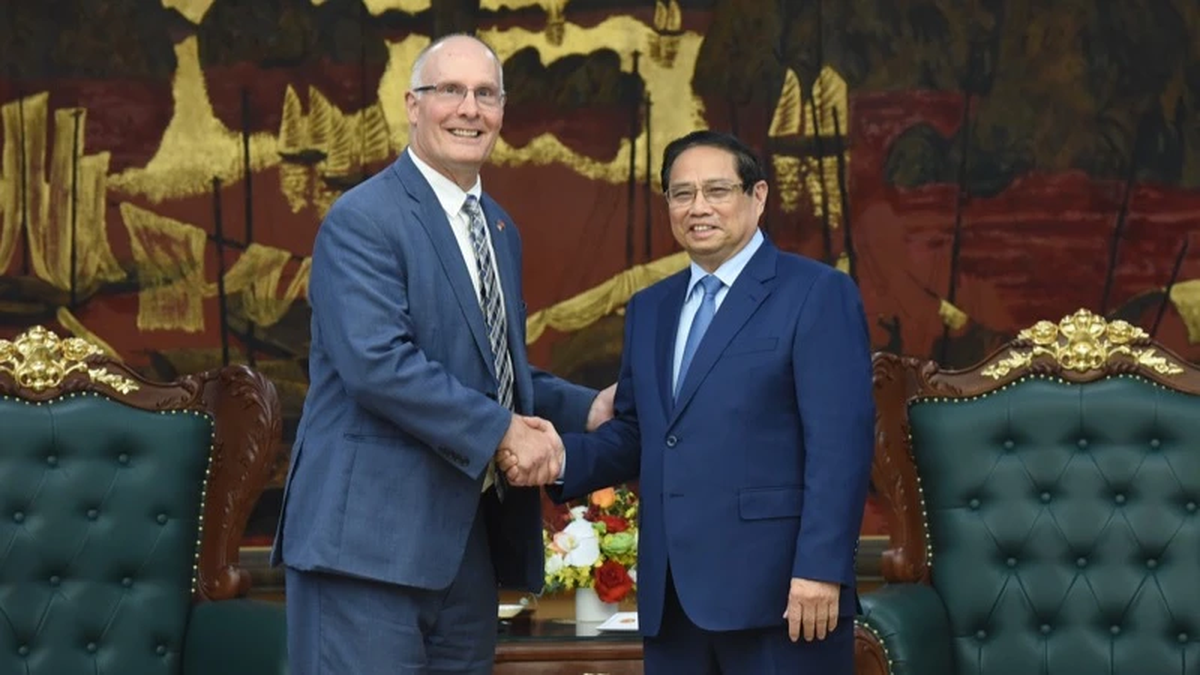
![[Photo] Prime Minister Pham Minh Chinh receives a bipartisan delegation of US House of Representatives](https://vphoto.vietnam.vn/thumb/1200x675/vietnam/resource/IMAGE/2025/5/28/468e61546b664d3f98dc75f6a3c2c880)













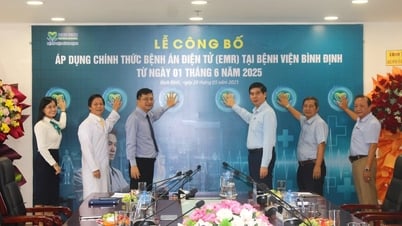

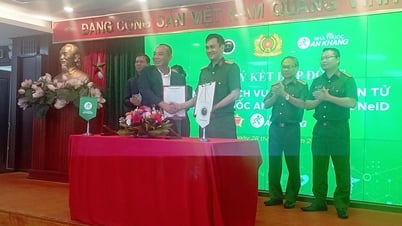










































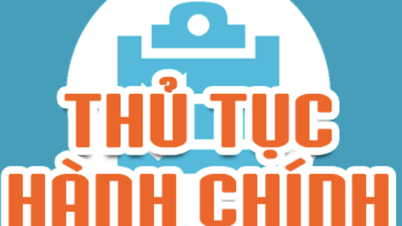

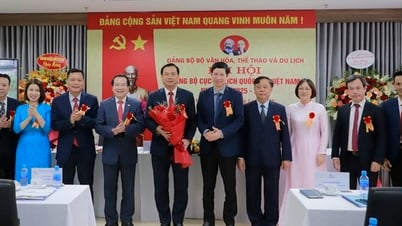





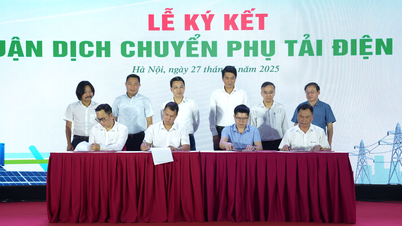
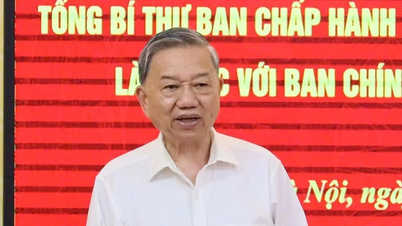

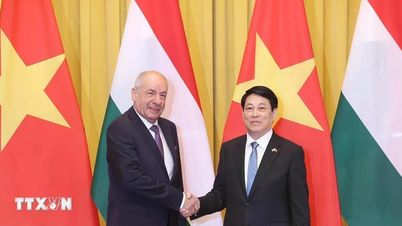




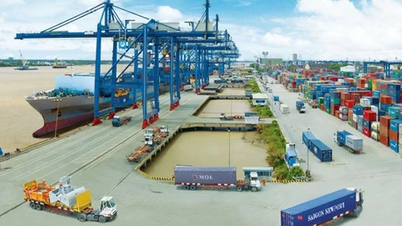








Comment (0)